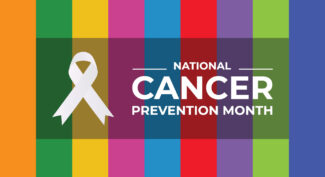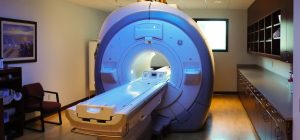
April is Cancer Prevention and Early Detection Month, an important initiative led by the Prevent Cancer Foundation. This annual observance highlights the critical role that prevention, regular screenings, and early detection play in reducing cancer incidence and saving lives.
According to the Centers for Disease Control and Prevention (CDC), approximately 1.7 million new cancer cases were reported in the United States in 2021, and cancer caused more than 600,000 deaths in 2022.
Many of these cancers, however, could have been prevented or detected earlier, greatly improving outcomes.
Understanding Cancer Prevention
Modifiable Risk Factors
The CDC estimates that around 30% to 50% of cancer cases could be prevented through lifestyle modifications. Some of the most significant modifiable risk factors include:
- Tobacco Use: Smoking and exposure to secondhand smoke significantly increase the risk of lung, throat, and many other cancers.
- Poor Diet: Diets high in processed foods, red meats, saturated fats, sugars, and low in fruits
 and vegetables elevate cancer risk.
and vegetables elevate cancer risk. - Physical Inactivity: Sedentary lifestyles are linked to higher cancer risk, particularly colorectal and breast cancers.
- Excessive Alcohol Consumption: Regularly consuming alcohol increases risks for cancers such as breast, liver, and colon.
- Excessive Sun Exposure: Unprotected exposure to UV radiation raises the risk of skin cancers, including melanoma.
- Infectious Agents: Viruses like HPV and Hepatitis B significantly increase the risk for certain cancers, making vaccination essential.
Lifestyle Recommendations
Implementing healthier choices in daily life can greatly reduce cancer risk:
- Avoid tobacco products completely.
- Eat a balanced diet rich in fruits, vegetables, whole grains, and lean proteins.
- Exercise regularly—the CDC recommends at least 150 minutes of moderate-intensity physical activity weekly.
- Protect skin from UV rays by applying sunscreen and avoiding tanning beds.
- Limit alcohol intake to reduce cancer risks.
- Get vaccinated against cancer-associated viruses like HPV and Hepatitis B.
The Critical Role of Early Detection
Early detection through regular screenings is essential for successfully treating many cancers. Screening tests can often find cancer before symptoms appear and, in some cases, detect precancerous conditions.
Recommended Screenings
The CDC and other major health organizations recommend regular screenings for several common cancers:
- Breast Cancer: Mammograms every two years for women aged 50-74; earlier or more frequent screenings may be recommended based on individual risk.
- Cervical Cancer: Pap tests every three years for women aged 21-65; HPV testing every five years for women aged 30-65.
- Colorectal Cancer: Regular colonoscopies or stool-based tests starting at age 45.
- Lung Cancer: Low-dose CT scans recommended for adults aged 50-80 who have a history of heavy smoking.
- Prostate Cancer: Discuss screening options with your healthcare provider, especially if you’re over 50 or have a family history.
MRI in Cancer Screening and Detection

Magnetic Resonance Imaging (MRI) is an advanced diagnostic tool used for certain types of cancer screenings, particularly breast cancer. Breast MRI can detect tumors at an early stage, especially for women at high risk or those with dense breast tissue. This advanced imaging technology provides detailed images, helping to identify cancers that mammograms may miss.
Overcoming Barriers to Screening
Despite the clear benefits, many people face obstacles accessing regular screenings. Socioeconomic barriers such as lack of insurance, inadequate transportation, and limited access to healthcare facilities disproportionately affect screening rates. Cultural barriers and a lack of awareness also hinder early detection efforts.
The CDC’s Health Equity in Cancer Control initiatives address these disparities through community outreach, education programs, and mobile screening units, ensuring more equitable access to essential health services.
Taking Action During Cancer Prevention and Early Detection Month
Personal Steps
Taking control of your health starts with simple yet impactful actions:
- Schedule regular screenings according to the recommended guidelines.
- Adopt healthier lifestyle habits that lower cancer risks.
- Educate yourself and others about the importance of early detection.
Community Involvement
Supporting cancer awareness efforts in your community can amplify the impact:
- Participate in local events and campaigns promoting cancer prevention.
- Support organizations committed to cancer research and patient support.
- Share awareness messages on social media to help educate others.
Explore more ways to participate at the Prevent Cancer Foundation and the CDC Cancer Prevention page.
Cancer Prevention and Early Detection Month highlights the power of proactive health measures. Early detection saves lives, and individual and community actions play a pivotal role in reducing cancer’s impact. By staying informed, adopting preventive measures, and supporting community efforts, we can significantly decrease cancer-related deaths.
Greater Waterbury Imaging Center is dedicated to supporting your health with advanced imaging technologies, including MRI screenings, to aid in early cancer detection. Contact us today for information on our imaging services and take a vital step toward safeguarding your health.


